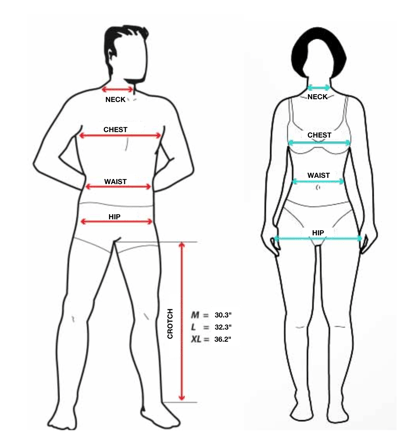-
 Money back guarantee
Money back guarantee
Fenugreek, what is it? Fenugreek, named helba or alba in Arabic, is also known as trigonella or senegrain. This plant is used for its medicinal virtues but also in cooking, for its aroma so characterful and aromatic that it is used to make cube broths. This plant, which has an annual life cycle, has been used since the Middle Ages, when it was already renowned for its hair properties. Fenugreek seeds Fenugreek seeds come from the plant itself, and can be used for external and internal use. Fenugreek is particularly rich in proteins, carbohydrates, lipids, minerals (iron, phosphorus, sulphur, magnesium, calcium, etc.), vitamins A, B1 and C. Their benefits (not exhaustive): -They are stimulants -They fortify the immune system -They are very nourishing -Increase sports performance -Improve endurance -Useful for recovery after exercise -Revitalize weakened people -Anabolic -Stimulate appetite -Help digestion -They are aphrodisiacs -Anti-inflammatory virtues - Anti-pain properties -Increase milk production in nursing mothers -Help in weight gain Use of fenugreek seeds: The seeds can be used in their seed form, but also crushed or reduced to powder. You can use them internally as an infusion, as a spice for your dishes, or to integrate them into the dough of your bread, for example. And you can use them externally as a compress or poultice by boiling the seeds or steeping them in a bath to relieve inflammation. Recommendations: It is not recommended for pregnant women to consume fenugreek. For a cure or prolonged consumption, seek the advice of a health professional.
Translated automatically
View original
Fenugreek, what is it? Fenugreek, named helba or alba in Arabic, is also known as trigonella or senegrain. This plant is used for its medicinal virtues but also in cooking, for its aroma so characterful and aromatic that it is used to make cube broths. This plant, which has an annual life cycle, has been used since the Middle Ages, when it was already renowned for its hair properties. Fenugreek seeds Fenugreek seeds come from the plant itself, and can be used for external and internal use. Fenugreek is particularly rich in proteins, carbohydrates, lipids, minerals (iron, phosphorus, sulphur, magnesium, calcium, etc.), vitamins A, B1 and C. Their benefits (not exhaustive): -They are stimulants -They fortify the immune system -They are very nourishing -Increase sports performance -Improve endurance -Useful for recovery after exercise -Revitalize weakened people -Anabolic -Stimulate appetite -Help digestion -They are aphrodisiacs -Anti-inflammatory virtues - Anti-pain properties -Increase milk production in nursing mothers -Help in weight gain Use of fenugreek seeds: The seeds can be used in their seed form, but also crushed or reduced to powder. You can use them internally as an infusion, as a spice for your dishes, or to integrate them into the dough of your bread, for example. And you can use them externally as a compress or poultice by boiling the seeds or steeping them in a bath to relieve inflammation. Recommendations: It is not recommended for pregnant women to consume fenugreek. For a cure or prolonged consumption, seek the advice of a health professional.
Types of spices:
Mixed
Le fenugrec, qu’est ce que c’est ?
Le fenugrec, du nom de helba ou alba en arabe, est aussi connu sous le nom de trigonelle ou sénégrain. Cette plante est utilisée pour ses vertus médicinales mais aussi en cuisine, pour son arôme si caractériel et aromatique qu’on l’utilise pour réaliser des bouillons de cube.
Cette plante qui a un cycle de vie annuel est utilisée depuis le Moyen-Age, où elle était déjà réputée pour ses propriétés capillaires.
Les graines de fenugrec
Les graines de fenugrec sont issues de la plante elle-même, et peuvent être utilisées pour un usage externe et interne.
Le fenugrec est notamment riche en protéines, glucides, lipides, en minéraux (fer, phosphore, soufre, magnésium, calcium…), vitamines A, B1 et C.
Leurs bienfaits (non exhaustif) :
-Ce sont des stimulants
-Elles fortifient le système immunitaire
-Elles sont très nourrissantes
-Augmentent les performances sportives
-Améliorent l’endurance
-Utiles pour la récupération après un effort
-Revitalisent les personnes affaiblies
-Anabolisantes
-Stimulent l’appétit
-Aident à digérer
-Elles sont aphrodisiaques
-Vertus anti inflammatoire
-Vertus anti douleur
-Augmentent la production de lait chez la mère allaitante
-Aide dans une prise de poids
Utilisation des graines de fenugrec :
Les graines peuvent s’utiliser sous leur forme de graines, mais aussi broyées ou réduites en poudre.
Vous pouvez les utiliser par voie interne en infusion, comme épice pour vos plats, ou à intégrer dans la pâte de votre pain par exemple.
Et vous pouvez les utiliser par voie externe en compresse ou cataplasme en faisant bouillir les graines ou en les faisant infuser dans un bain pour soulager une inflammation.
Recommandations :
Il est déconseillé aux femmes enceintes de consommer du fenugrec. Pour une cure ou une consommation prolongée, demandez l’avis à un professionnel de santé.
Delivery Delay
- United States from 10 to 16 days.
- France from 3 to 9 days.
- United Kingdom from 5 to 11 days.
- France (DOM) from 6 to 12 days.
- Canada from 15 to 21 days.
- Europe from 5 to 11 days.
- International from 10 to 16 days.
Refunds and Exchanges
- Money back guaranteed 15 days after reception.
- Return shipping fees are at your charge and not refunded.
- Refunds are made on your ANKA virtual wallet. You can use the credit to buy another product or transfer the amount to your bank account.
Condition
- New item.
- Customizable and made to order.
Similar products
Other dianepourelle's products
Similar searches
Home and Art Groceries Spices, Plants, Roots and Powders Home and Art Groceries Spices, Plants, Roots and Powders
 USD $
USD $


























Thank you for this product 👍👍👍
Merci pour ce produit 👍👍👍
Translated automatically View original